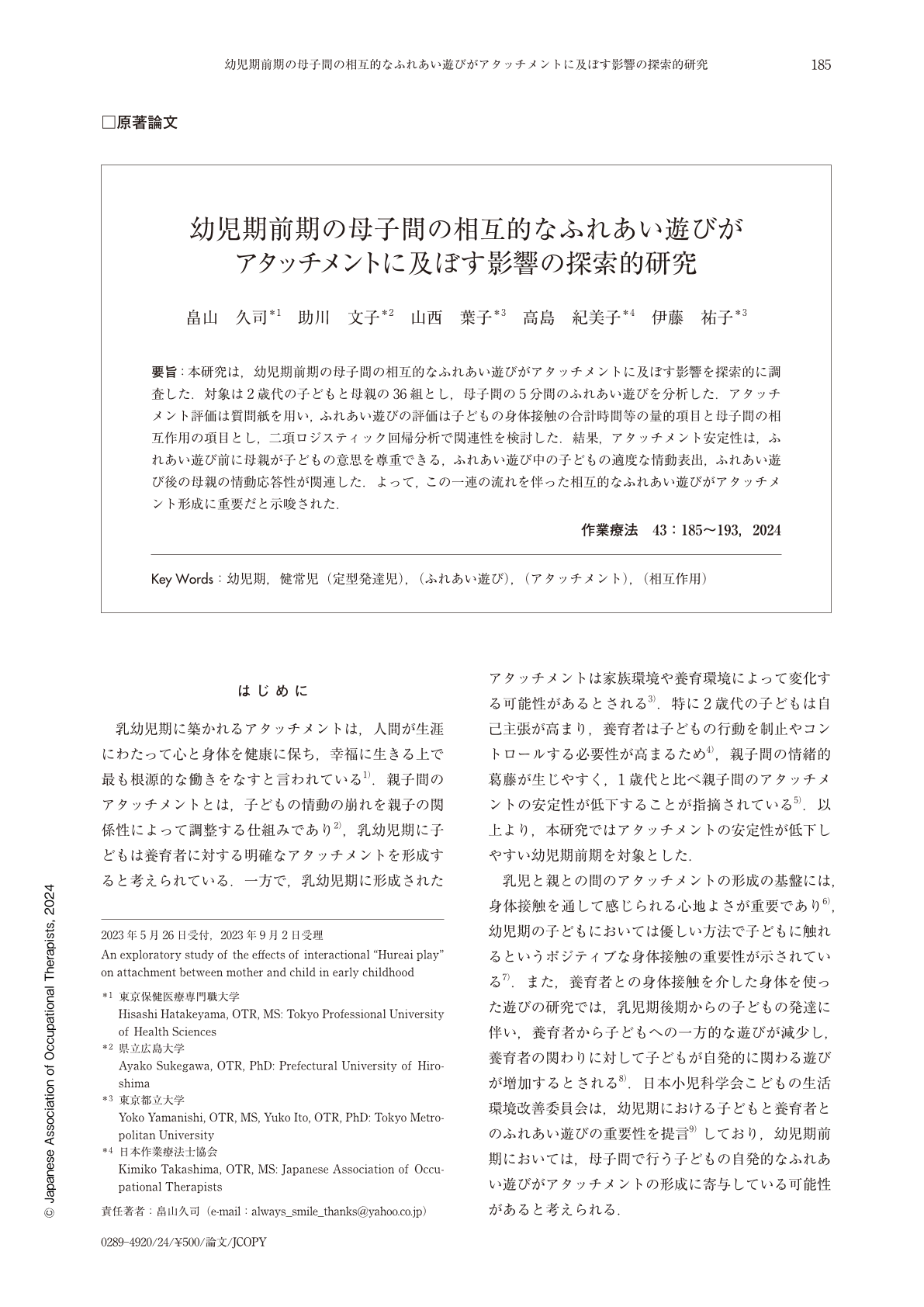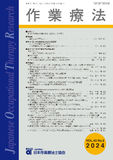Japanese
English
- 販売していません
- Abstract 文献概要
- 1ページ目 Look Inside
- 参考文献 Reference
要旨:本研究は,幼児期前期の母子間の相互的なふれあい遊びがアタッチメントに及ぼす影響を探索的に調査した.対象は2歳代の子どもと母親の36組とし,母子間の5分間のふれあい遊びを分析した.アタッチメント評価は質問紙を用い,ふれあい遊びの評価は子どもの身体接触の合計時間等の量的項目と母子間の相互作用の項目とし,二項ロジスティック回帰分析で関連性を検討した.結果,アタッチメント安定性は,ふれあい遊び前に母親が子どもの意思を尊重できる,ふれあい遊び中の子どもの適度な情動表出,ふれあい遊び後の母親の情動応答性が関連した.よって,この一連の流れを伴った相互的なふれあい遊びがアタッチメント形成に重要だと示唆された.
The purpose of this study was to explore the effects of interactional “Hureai play” in early childhood between mother and child on attachment. Participants comprised 36 children between the ages of 2 and 2 years and 11 months, and their respective mothers. Ten minutes of free play between mother and child were filmed, and the analysis was conducted for the five minutes in which there was a lot of “Hureai play.” A questionnaire was used to evaluate attachment, and “Hureai play” was examined quantitatively through total time of positive touch with the child as well as items related to mother-child interactions. The relationship between attachment and “Hureai play” was examined using a binomial logistic regression analysis. The results showed that quantitative items were not involved in attachment stability. However, a mother's ability to respect the child's intentions before “Hureai play,” the child's moderate emotional expressions during “Hureai play,” and the mother's emotional responsiveness after “Hureai play” were related. Therefore, it was suggested that interactional “Hureai play” between mother and child with this sequence of events is important for attachment formation.

Copyright © 2024, Japanese Association of Occupational Therapists. All rights reserved.


